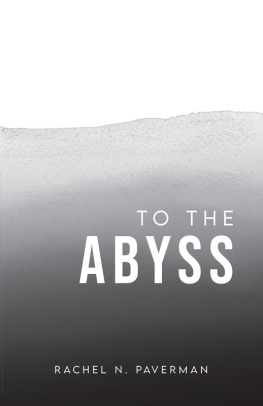
Marcia Clark
Guilt By Degrees
The second book in the Rachel Knight series, 2012
This book is dedicated to the memory of a true hero, Hugo Tale-Yax, whose selfless rescue of another cost him his life.
He stood still, listening as the car pulled out of the driveway. When the sound of the engine faded into the distance, Zack looked at his watch: 9:36 a.m. Perfect. Three solid hours of me time. He eagerly trotted down the thinly carpeted stairs to the basement, the heavy bass thud of his work boots echoing through the empty house. Clutched in his hand was the magazine photograph of the canopy he intended to build. He figured it wouldve cost a small fortune at one of those fancy designer stores, but the copy hed make would be just as good, if not better-and for less than a tenth of the price. A smile curled Zacks lips as he enjoyed the mental image of Lilahs naked body framed by gauzy curtains hanging from the canopy, wafting seductively around the bed. He inhaled, imagining her perfume as he savored the fantasy.
Zack jumped down the last step and moved to the corkboard hanging above his workbench. He tacked up the magazine photo, pulled out the armless secretary chair with the bouncy backrest, and sat down heavily. The squeak of the overburdened springs jangled in the stillness of the dank air. The room was little more than a cement-floored cell, but it was Zacks paradise, filled to bursting with the highest quality carpentry tools he could afford, acquired slowly and lovingly over the years. Since he was a kid, hed found that making things with his hands had the power to both calm and inspire him. His brother, Simon, said it was his form of Zen. Zack shook his head. Simon wouldve made a great hippie if he hadnt been born about twenty years too late.
Hanging on the walls were framed photographs of Zacks completed projects: the seven-tiered bookcase, the cedar trunk with inset shelving, the wine cabinet. Each one had come out better than the last. His gaze lingered on the photograph of the wine cabinet as he remembered how hed labored to carve the grape leaves on its doors. It had to be worth at least five hundred dollars.
Zack turned to the bench. He pulled a steno notepad off the shelf above it and snagged a pencil from the beer stein where he kept his drafting tools. The stein had been a Christmas gift from his rookie partner, who hadnt yet learned that, unlike the other cops in their division, he wasnt much of a drinker.
He rolled his chair back, put his feet up on the desk, and began to sketch. Minutes later, hed finished the broad outline. He held the drawing at arms length to get a better perspective when a sound-a soft rustling somewhere behind him-made Zack stop, pad still poised in midair. He dropped his feet to the floor and carefully began to scan the room.
He sensed rather than saw the sudden motion in his periphery. Before he could react, the weight of an anvil crashed into the side of his head. Blood-filled stars exploded behind his eyes as he flew off the chair and landed on his back on the hard cement.
Zack opened his eyes, dimly aware of a voice-his own?-crying out in pain. Someone was poised above him. Again he sensed movement, something cutting through the air. In a hideous moment of clarity, Zack saw what it was. An ax.
He watched in mute horror as the blade came whistling down. At the last second, he squeezed his eyes shut-hoping to make the nightmare go away. But the ax plunged deep and hard, the blade slicing cruelly through his neck, right down to the vertebrae. As the blade yanked out, his body arched up, then collapsed back to the ground, and blood spurted from his severed carotid. The ax rose again, then hurtled downward, blood flying off its edge and onto the walls. Again and again, the blade rose and fell in a steady, inexorable rhythm, severing arms and legs, splitting the abdomen, unleashing coiled intestines and a foul odor. When at last the bloody ax dropped to the floor, a fine red spray spattered the walls and the shiny trophy photographs of Zacks creations.
Two Years Later
He moved with purpose. That alone might have drawn attention to the man in the soiled wool overcoat, but the postlunch crowd was a briskly flowing river of bodies.
The homeless man picked up his pace, his eyes focused with a burning intensity on the woman ahead of him. Suddenly he thrust out his hand and gripped her forearm. Stunned, the woman turned to look at her attacker. Shock gave way to outrage, then fear, as she twisted violently in an effort to wrest her arm away. They struggled for a few seconds in their awkward pas de deux, but just as the woman raised a hand to shove him back, the man abruptly released his grip. The woman immediately fled into the crowd. The man doubled over and began to sink to the ground, his face contorted in a grimace of pain. But even as his body sagged, his eyes bored into the crowd, searching for her, as though by sheer dint of will they could pull her back.
Finally, though, unable to resist the undertow, he sank down onto the filthy sidewalk, turned on his side, and began to rock back and forth like a child. The river of pedestrians flowed on, pausing only long enough to wind around him and then merge again. After half an hour, the rocking stopped. A passerby in a janitors uniform leaned down to look at the man for a brief moment, then continued on his way. A young girl pointed her cell phone at him and took a picture, then moved on as well.
It would be another hour before anyone noticed the spreading crimson stain under the homeless mans body. Another hour after that before anyone thought to call the police.
Twelve Days Later
I looked out the window of my office on the eighteenth floor of the Criminal Courts Building, sipping my third cup of coffee of the morning and savoring the view-one of my favorite pastimes. It had poured last night; early this morning, an unexpected wind kicked up. All vestiges of smog were wiped out, bequeathing to the citizens of L.A. an uncommonly sparkling day. I watched the sunlight dance over the leaves of tall trees whose branches whipped to and fro, threatening to crack the heads of those scurrying up the street toward the courthouse.
Rachel, dont you have a preliminary hearing on that arson murder in Judge Fosters court this morning? asked Eric Northrup, my boss and the head deputy of the Special Trials Unit.
As with all cases in Special Trials, my arson murder case was that ugly combination of complex and high-profile. Proving arson is seldom as simple as it sounds. You have to rule out all accidental and natural causes, and frequently the necessary evidence burns up with the victims-who in this case were the elderly parents of the murderer. The press probably wouldnt hang around for the preliminary hearing, but theyd been making noises about wanting to cover the trial. And that meant Id have them breathing down my neck while I slogged through the reams of testimony required to stitch together a million little pieces of evidence, praying that the jury didnt get lost along the way. Fun. But ever since Id joined the district attorneys office eight years ago, Id dreamed of being one of the few handpicked deputies in Special Trials. And this kind of gnarly beast of a case, which swallowed up any semblance of a personal life, was exactly what Id signed up for.
Yep, I replied. My motto: Keep it simple and never offer more than the question asks for. With a little luck, the questioner gives up and goes away. That motto is less effective when the questioner happens to be your boss and youre in your office when youre supposed to be in court doing a preliminary hearing on a murder case.
Next page






